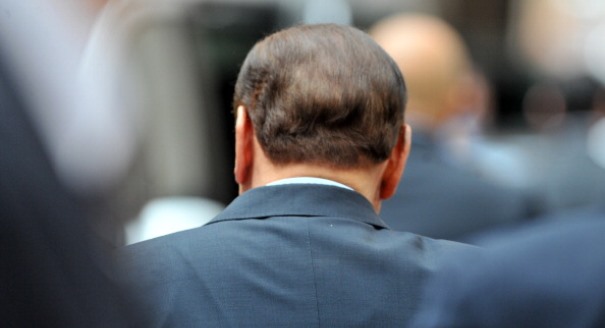Every week a selection of leading experts answer a new question from Judy Dempsey on the foreign and security policy challenges shaping Europe’s role in the world.
Federiga BindiJean Monnet chair in European political integration at the University of Rome Tor Vergata and senior fellow at the School of Advanced International Studies, Johns Hopkins University
“Two decades [of former prime minister Silvio Berlusconi] have come to an end,” said Italian Prime Minister Enrico Letta last weekend. “[Interior Minister] Angelino Alfano showed strong leadership, he was defied, and he won.”
Alfano’s victory was in fact Berlusconi’s defeat; the pupil finally vanquished his tutor. Alfano, now reunited in government with his longtime friend Letta—they are both former members of the Young Christian Democrats—finally found the courage to act. Formally, Alfano is still a member of Berlusconi’s People of Freedom (PdL) party, while Letta is still committed to the Democratic Party. Yet, whether it takes three months or three years, the Rubicon has been crossed, and a new political scenario will slowly emerge for Italy.
If Matteo Renzi, mayor of Florence and another former Christian Democrat, becomes leader of the Democratic Party, its left wing will partially migrate to the socialist Left Ecology Freedom. If he doesn’t, the party’s centrists will probably join forces with other moderates in the medium term.
As for Berlusconi, he will have to content himself with his fiancée’s poodle, Dudù.
Heather ConleySenior fellow and director of the Europe Program at the Center for Strategic and International Studies
The ever-mercurial Silvio Berlusconi may have been publicly humiliated, but he will ensure there are future twists and turns to Italy’s political plot. Berlusconi now knows he will not be able to remove his ministers and party from the coalition on his personal whim. The People of Freedom (PdL) party is no longer willing to blindly follow his lead.
Berlusconi could take matters into his own hands and resign before the Italian Senate votes to ban him from parliament following his conviction for tax fraud. He could quit the PdL and lead his recently reconstituted Forza Italia (“Go Italy”) party, leaving the PdL to accept the blame for unpopular government measures.
What would a Berlusconi exit mean for the stability and durability of the government of Enrico Letta? In the short run, a PdL without Berlusconi may temporarily stabilize the current coalition; but in the longer term his party would be substantially weakened, which would undermine the coalition. Outside government and thanks to his media empire, an unleashed and hyperpopulist Berlusconi could hinder the government’s efforts to continue its economic reforms.
Many epitaphs have been written about the political demise of Silvio Berlusconi, only for him to rise from the ashes. After being forced to resign in 2011, he returned to lead his party to capture a whopping 29.1 percent of the vote in this year’s general election, securing a strong voice in a fragile coalition government. Now aged seventy-seven, Berlusconi could potentially engineer another political comeback.
Gianni RiottaMember of the Council on Foreign Relations
Yes and no.
As a political leader, candidate, and prime minister, Silvio Berlusconi’s shelf life is over. Yet the Italians who flocked to vote for his People of Freedom (PdL) party at February’s general election are still his for the taking. They will not change their voting habits, even though their party may soon have a new leader. Corrado Passera, the former chief executive of Banca Intesa, and Luca di Montezemolo, the chairman of Ferrari, have often been considered for that role, and others may try to step into Berlusconi’s loafers.
Meanwhile, the issues exposed by Berlusconi will not go away. There is popular resentment for an unworkable tax code, a judicial system deemed too partisan by many, and a Left that is too cozy with militant trade unions to appease small and medium-sized companies. Berlusconi did not address any of these issues in a convincing way. On the contrary, future historians will remember his failure to reform the Italian economy as his No. 1 sin.
And so, the Berlusconi star is eventually fading. But the sky in which it rose has not changed much. The Democratic Party should seize the opportunity not to repeat the disappointments of 1996, 2006, and 2013, when its dreams of electoral victory were crushed by feuds, old-fashioned ideas, and a lack of leadership.
Stephen SzaboExecutive director of the Transatlantic Academy
Yes, Silvio Berlusconi is finished.
His People of Freedom (PdL) party has made it clear that it will no longer support his continual confusion of his own personal interests with those of the Italian Right. There seems no real possibility that he will recover from either his criminal conviction or the fragmentation of his personalistic political movement.
The question now is: What will remain of Berlusconismo after his departure? Berlusconi’s greatest achievement was the stability he brought to the revolving-door nature of Italian politics. His governments set records for longevity, but at the cost of polarization.
Will his departure help depolarize Italian politics? Will the Right now consolidate around a new broad political party with a leadership willing to consider cooperating with the other side to confront the serious problems facing Italy? Or will instability lead to an even greater sense of cynicism and public despair over the country’s political system?
Italy has a great opportunity to reshape a bankrupt democracy and usher in a new risorgimento—if only its leaders can seize that chance.











